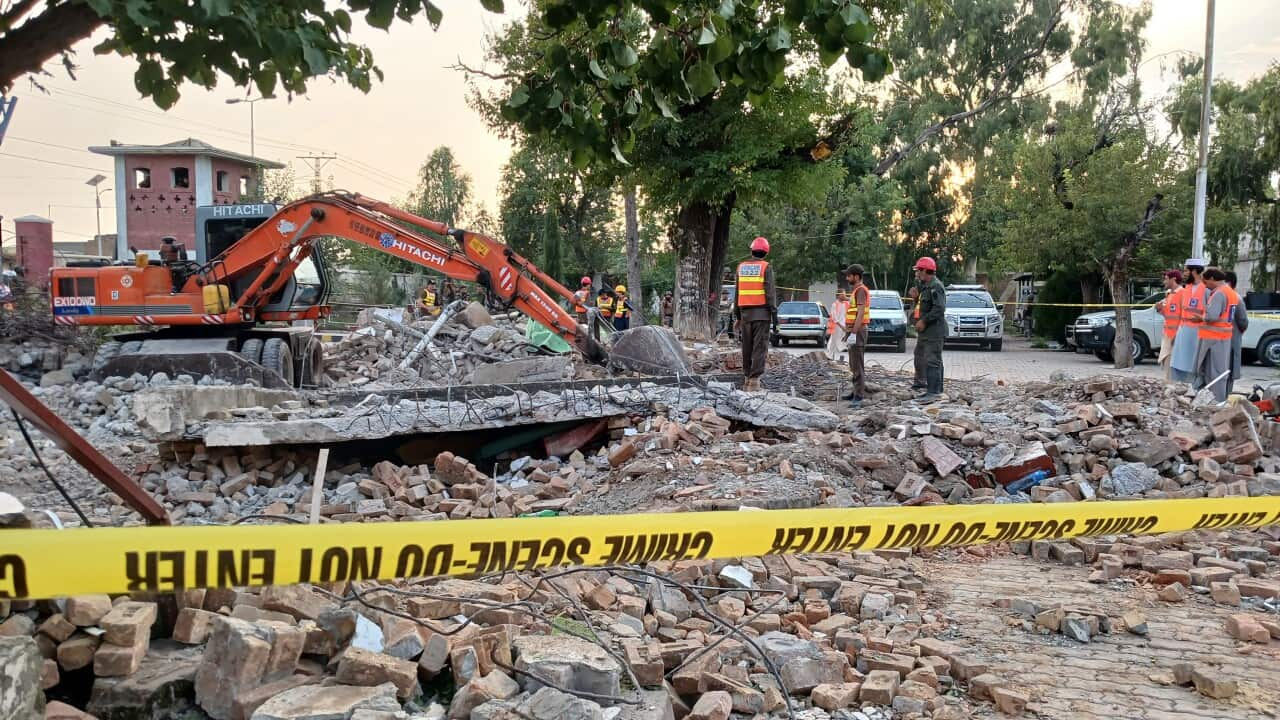Key Points
- Bombings at two mosques in Pakistan have claimed the lives of more than 55 people.
- In the first blast, a suicide bomber detonated explosives in the southwestern province of Balochistan.
- A second attack took place in the neighbouring province of Khyber Pakhtunkhwa.
Bombings have ripped through two mosques in Pakistan, killing at least 57 people, including seven children, as believers marked the birthday of the Prophet Mohammed, police and health officials say.
No group immediately claimed responsibility for the attacks, from which the death toll could climb, with many people seriously injured and others having been trapped beneath the wreckage.
In the first blast, in Mastung in the southwestern province of Balochistan, a suicide bomber detonated his explosives near a police vehicle where people were gathering for a procession, senior police official Munir Ahmed said.
At least 52 people were killed, according to district health official Abdul Rasheed, including the children who were aged nine to 11. At least 58 people were injured.
"The injured were crying for help," witness Munir Ahmed Shahwani said. "I saw at least 25 bodies on the spot, which included small children," he said, adding people were looking for their loved ones.
A deputy superintendent of police was among those killed as he oversaw security arrangements in the area, police said.

The bombings took place during Friday prayer processions. Source: EPA / Basit Gilani
The gathering, in which people were carrying flags and banners, was at a mosque belonging to the Barelvi sect.
The second attack, in neighbouring Khyber Pakhtunkhwa, killed five people at a mosque in a police compound, according to rescue officials.
The roof collapsed, broadcaster Geo News said, trapping about 30 to 40 people under the rubble.
The attack involved two explosions, one of which was at the mosque gate and the other in the compound, an official said.
A surge in militant attacks in Pakistan's western provinces has cast a shadow on election preparations and public campaigning in the run-up to January's general elections but until now the attacks had mostly targeted security forces.
Caretaker Prime Minister Anwar ul Haq Kakar, in Saudi Arabia for the religious pilgrimage of Umrah, condemned the blasts and called for full support for victims.
Kakar heads a caretaker government meant to oversee elections scheduled for the last week of January.
Militant attacks have surged since 2022 when a ceasefire broke down between the government and the Tehreek-e-Taliban Pakistan (TTP), an umbrella body of hardline Sunni Islamist groups.
The TTP, responsible for some of the bloodiest attacks in Pakistan since its formation in 2007, denied responsibility for Friday's blasts.
In July, more than 40 people were killed in a suicide bombing in Khyber Pakhtunkhwa at a religious political party's gathering. The self-proclaimed Islamic State group (IS) claimed responsibility for that attack.










